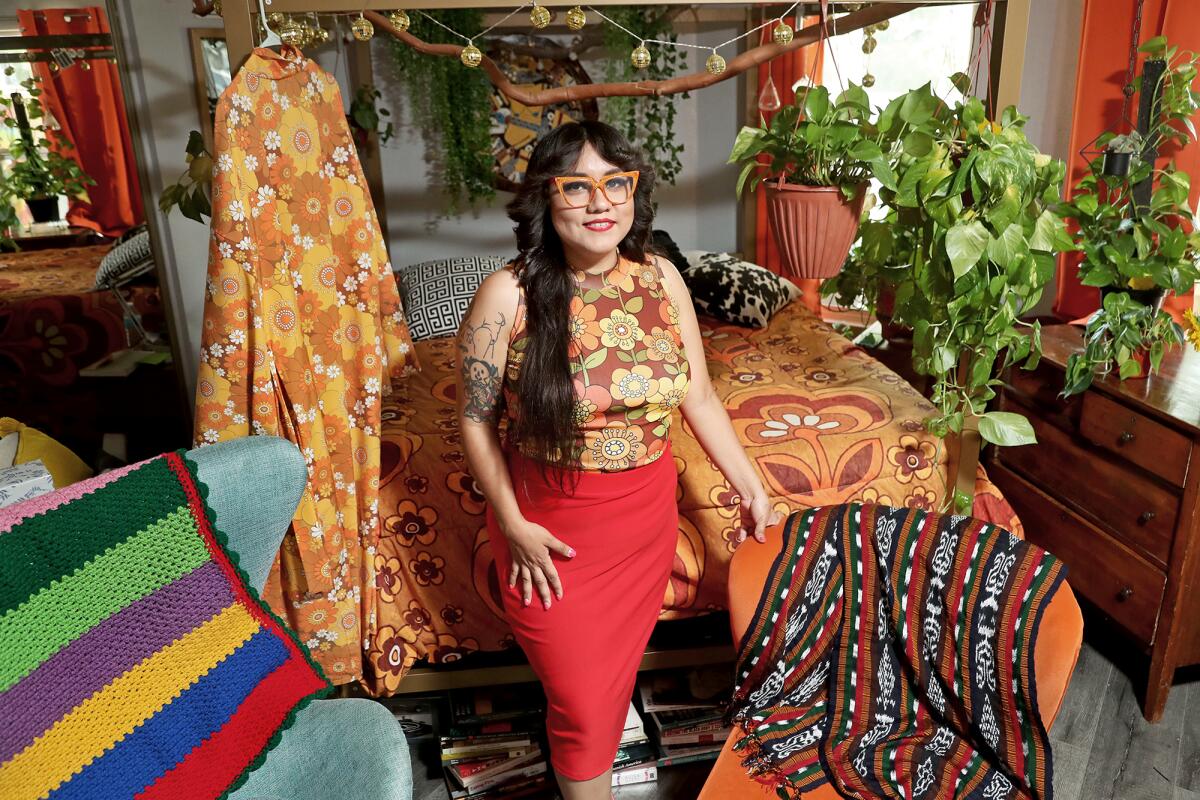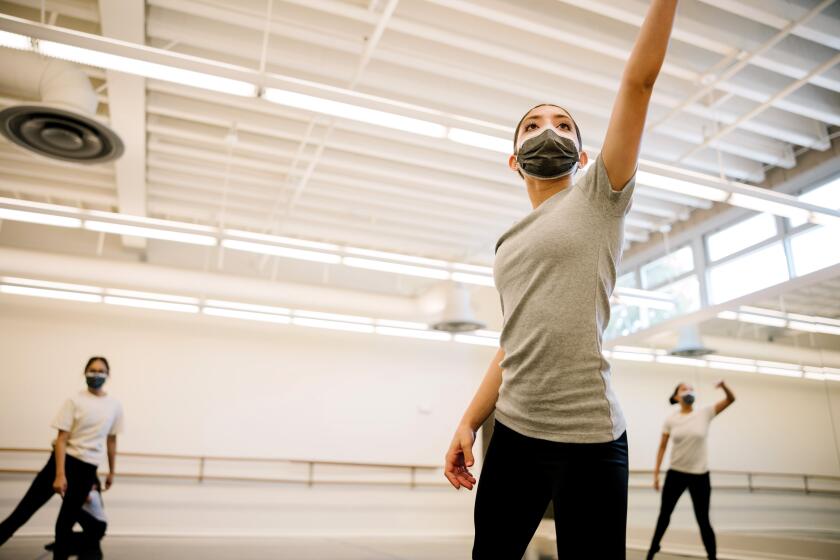Grassroots organization fills service gap for those dealing with eating disorders

For years, Nalgona Positivity Pride’s logo has been a child taking a huge chomp out of a burger. It’s an animated rendering of the founder of the grassroots organization’s friend that captures the group’s essence — unapologetic.
“It’s a heartwarming image that just took me back to being a child, being an intuitive eater,” said NPP founder Gloria Lucas. “You know when you’re hungry. You know when you’re full. Somehow along the way — with fatphobia and being introduced to beliefs as to what a woman should look like — we lose that.”
For the record:
10:11 a.m. July 12, 2021An earlier version of this article misspelled Ilya Parker’s name.
The logo goes hand in hand with the group’s playful name. The Spanish word “nalgona” refers to a woman with a big butt, at times used in a negative way to describe larger body types. But for Lucas, using it means reclaiming it.
NPP offers a variety of services such as in-person talks, online courses and peer support groups. It’s purpose is to create a grassroots treatment model with an emphasis on harm reduction for Black, Indigenous and people of color who are struggling with eating disorders and poor body image.
Lucas describes harm reduction as a compassionate approach to providing “over the counter” ways for people, who aren’t able to completely abstain from eating disorder behavior, to take care of themselves. For example, education about oral care when some behaviors take a toll on teeth.
The Wooden Floor returns to live performance with its 38th annual concert “Passage/Home” July 15-17 and July 23-24. The concerts will feature site-specific dance choreography performed by Orange County youth.
Lucas, who identifies as Xicana, created the organization in 2014 after struggling with an eating disorder and having difficulties finding medical treatment and representation in research.
“I wanted to learn why I had developed an eating disorder if this is a struggle that focuses on white, middle-class women,” said Lucas. “Obviously, I learned later that eating disorders impact all kinds of people, even those who look ‘healthy.’ Everything that I was reading did not talk about race or historical violence.”
NPP started off as unfunded public speaking events in schools and events that linked historical trauma to eating disorders.
“My public speaking started as a Jehovah’s Witness and having to go door to door,” she joked. Later, Lucas added that she pulled skills from her background as an activist, sexual health educator, youth program staff and nonprofit work associated with substance abuse and trauma among cis and trans women.
After she kept getting frequent requests for travelling speaking gigs, Lucas decided to grow NPP on a full-time basis.
One of her milestones was reaching 100,000 followers on the organization’s Instagram account, where she brings awareness to many social issues. Another milestone was developing business consultation services and the Mujeres Market, a pop up featuring independent vendors who identify as women of color, femmes of color, or queer or trans people of color.
Lucas has stopped traveling for in-person talks during the coronavirus pandemic. She’s focused on posting regularly on Instagram, developing more courses and taking care of Etsy order shipments of NPP’s merchandise from her Santa Ana home.
Online courses, led by Lucas, dieticians, nurses, therapists, social workers and scholars, touch on colonial roots of psychiatry, how to set boundaries around food during the holidays and more. Topics like dealing with intimate partner violence were added in 2020 as domestic violence resource centers tracked a rise in cases.
The free online peer support group, Sage and Spoon, also expanded. Initially, Sage and Spoon, which meet on the last week of every month, was for BIPOC 18 years old or older. A second iteration of the group for Black people and led by Black specialists was formed at the end of 2020.
Over Zoom, licensed clinical mental health therapist Alishia McCullough and physical therapist assistant Ilya Parker typically start with a welcome, introduce the group’s purpose, explain guidelines and then dive into a topic for the month.
McCullough said about 50 people attended the last group meeting.
In June, the topic was intersectionality, trauma and eating disorders. Participants have the option to share while McCullough and Parker discuss tips and resources. The session ends with a breathing exercise.
McCullough, who specializes in eating disorders, disordered eating and racial trauma, met Lucas doing panel discussions.
“When I was getting all my experience with eating disorders, it was all coming from a lens of academia and clinical work through therapy,” said McCullough. “However, Gloria was the one who showed me that this can look so much different. You don’t necessarily have to have that background in higher education. Seeing someone be able to do that work — speak from her experience and do it on a grassroots level really encouraged me in my own journey … Sometimes in academia, we discount lived experience and uphold research as part of that colonial framework.”
As for NPP’s future, Lucas said she would like to open a brick-and-mortar one day that can serve as a shop, community space and eating disorder center that combines a holistic team of therapists, acupuncturists and curanderos.
All the latest on Orange County from Orange County.
Get our free TimesOC newsletter.
You may occasionally receive promotional content from the Daily Pilot.





